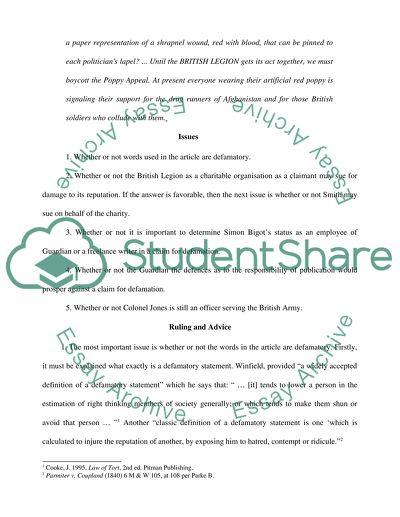Cite this document
(The Poppy Appeal Case Essay Example | Topics and Well Written Essays - 1750 words, n.d.)
The Poppy Appeal Case Essay Example | Topics and Well Written Essays - 1750 words. https://studentshare.org/law/1573519-tort-law-problem-question-defamation
The Poppy Appeal Case Essay Example | Topics and Well Written Essays - 1750 words. https://studentshare.org/law/1573519-tort-law-problem-question-defamation
(The Poppy Appeal Case Essay Example | Topics and Well Written Essays - 1750 Words)
The Poppy Appeal Case Essay Example | Topics and Well Written Essays - 1750 Words. https://studentshare.org/law/1573519-tort-law-problem-question-defamation.
The Poppy Appeal Case Essay Example | Topics and Well Written Essays - 1750 Words. https://studentshare.org/law/1573519-tort-law-problem-question-defamation.
“The Poppy Appeal Case Essay Example | Topics and Well Written Essays - 1750 Words”. https://studentshare.org/law/1573519-tort-law-problem-question-defamation.


